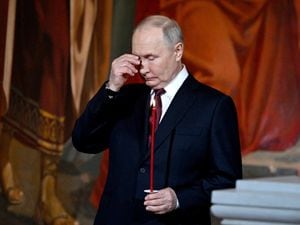Upper house of Russian parliament approves ban on gender changes
The move extends the Kremlin’s drive to protect what it views as the country’s traditional values.

The upper house of Russia’s parliament has unanimously approved a Bill outlawing gender-affirming procedures, sending the measure to President Vladimir Putin to be signed into law.
The move extends the Kremlin’s drive to protect what it views as the country’s traditional values.
The Bill, which had already been approved in the lower house, bans any “medical interventions aimed at changing the sex of a person”, as well as changing one’s gender in official documents and public records.
The only exception will be medical intervention to treat congenital anomalies.
It also annuls marriages in which one person has “changed gender” and bars transgender people from becoming foster or adoptive parents.
Lawmakers portray the measure as protecting Russia from “the western anti-family ideology”, with some describing gender transitioning as “pure satanism”.
Russia’s crackdown on LGBT+ people started a decade ago when Mr Putin first proclaimed a focus on “traditional family values”, supported by the Russian Orthodox Church.
In 2013, the Kremlin adopted legislation that banned any public endorsement of “non-traditional sexual relations” among minors. In 2020, Mr Putin pushed through a constitutional reform that outlawed same-sex marriage.





